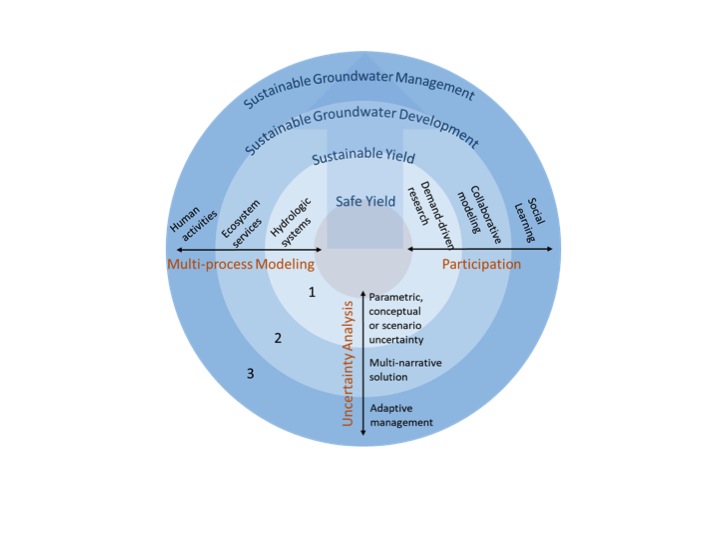
SPONSOR:
National Science Foundation – EPSCoR’s ‘Ike Wai
PROJECT PERIOD:
10/2017 – 05/2021
PROJECT PIs:
Gwen Jacobs, and Aly El-Kadi (Senior Researcher)
ABSTRACT:
Concerns over groundwater depletion and ecosystem degradation have led to the incorporation of the concept of sustainability as a groundwater policy instrument in several water codes and worldwide management directives. However, implementing such policies remains a challenge for water managers and the scientific community because sustainable groundwater management is embedded within integrated co-evolving hydrological and socioeconomic systems. The problem is exacerbated when participatory processes are lacking, resulting in a communication gap between water authorities, scientists, and the broader community. This paper provides a systematic review of the concept of groundwater sustainability and satisfies the need for more participatory and integrated approaches to water security. In this article we discussed the definition of groundwater sustainability from both a policy and scientific perspective, and tracing the evolution of this concept from safe yield to sustainable groundwater management. We concluded that effective groundwater sustainability policy implementation requires an iterative scientific evaluation that (1) engages stakeholders in a participatory process through collaborative modeling and social learning; (2) provides improved understanding of the coevolving scenarios between surface water-groundwater systems, ecosystems, and human activities; and (3) acknowledges and addresses uncertainty in our scientific knowledge and the diversity of societal preferences using multi-model uncertainty analysis and adaptive management.
Project Publication:
Elshall, A.S., A.D. Arik, A. El-Kadi, S.A. Pierce, M. Ye, K.M. Burnett, C.A. Wada, L.L. Bremer, and G. Chun. 2020. Groundwater sustainability: A review of the interactions between science and policy. Environmental Research Letters. https://doi.org/10.1088/1748-9326/ab8e8c
PRINCIPAL INVESTIGATOR
